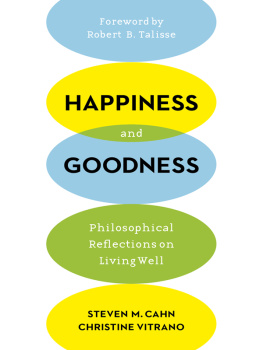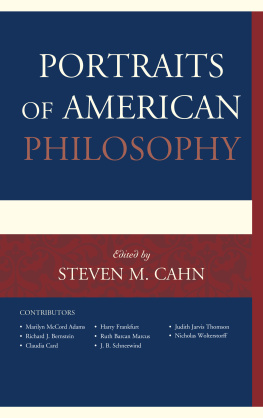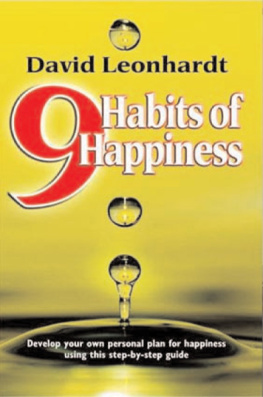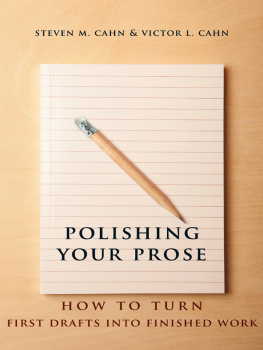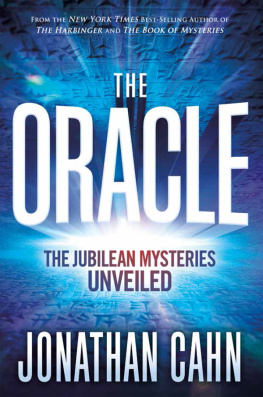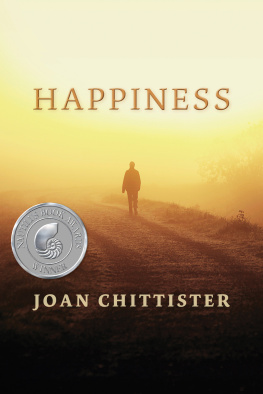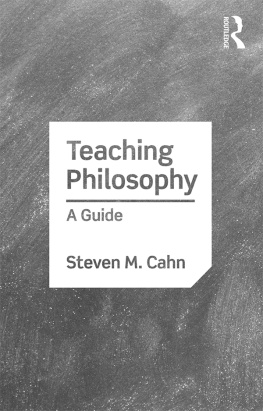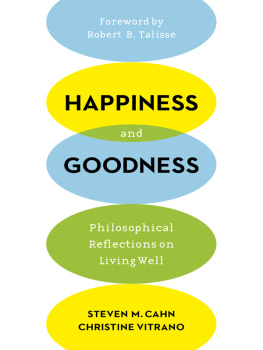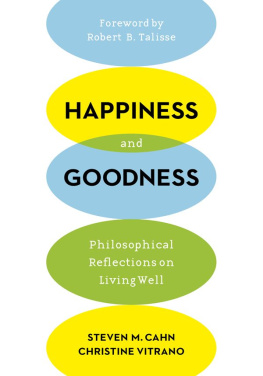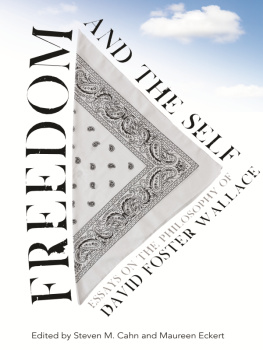HAPPINESS AND GOODNESS
HAPPINESS
and
GOODNESS
Philosophical
Reflections on
Living Well
STEVEN M. CAHN
CHRISTINE VITRANO
Columbia University Press New York
Columbia University Press
Publishers Since 1893
New York Chichester, West Sussex
cup.columbia.edu
Copyright 2015 Columbia University Press
All rights reserved
E-ISBN 978-0-231-53936-4
Library of Congress Cataloging-in-Publication Data
Cahn, Steven M.
Happiness and goodness : philosophical reflections on living well /
Steven M. Cahn and Christine Vitrano.
pages cm
Includes bibliographical references and index.
ISBN 978-0-231-17240-0 (cloth : alk. paper)
ISBN 978-0-231-17241-7 (pbk. : alk. paper)
ISBN 978-0-231-53936-4 (e-book)
1. Life. 2. Conduct of life. 3. Happiness. 4. Well-being. I. Title.
BD431.C224 2015
171.3dc23
2014041694
A Columbia University Press E-book.
CUP would be pleased to hear about your reading experience with this e-book at .
Cover and book design: Lisa Hamm
References to websites (URLs) were accurate at the time of writing. Neither the author nor Columbia University Press is responsible for URLs that may have expired or changed since the manuscript was prepared.
CONTENTS
Robert B. Talisse
PROFESSOR: Why have you enrolled in my course?
STUDENT: Because its required for my major.
PROFESSOR: But why are you doing whats required for your major?
STUDENT: Because I want to complete my degree.
PROFESSOR: But why do you want to complete your degree?
STUDENT: Because I want to get a good job.
PROFESSOR: But why do you want to get a good job?
STUDENT: Because I want to earn a good salary.
PROFESSOR: But why do you want to earn a good salary?
STUDENT: So that I can afford to buy the things I wanta nice house, a fast car, delicious food, fashionable clothes, and so on.
PROFESSOR: But why do you want those things?
STUDENT: Because having them will make me happy.
PROFESSOR: But why do you want to be happy?
STUDENT: Huh?
It was probably Aristotle who first took note of the special role that the concept of happiness plays in our thinking about how to live. Happiness, he argued, is the final end of all human activity, that for the sake of which every action is performed. The Student is perplexed at the end of the exchange above because the Professor, in posing her final question, betrays a lack of familiarity with this basic Aristotelian insight. The Student understands that there really is no response to the question Why do you want to be happy? To identify an action as necessary for ones happiness is to explain why one would even perform it. When explaining human action, happiness is where the buck stops.
Aristotles insight seems undeniable and, understandably, it remains popular among philosophers. However, like most undeniable philosophical claims, it ultimately does not tell us much. To identify happiness as the definitive aim of human action is to simply assert that we do what we think will bring us happiness. It is to say that when we act, we act for the sake of what we take to be happiness. As appearances can be deceiving, deep questions persist about what happiness is.
Perhaps this is why Aristotle affirmed further that happiness is the culmination of all of the good things a human life could manifest. He claimed that the truly happy person not only derives great enjoyment from living, but is also both morally and cognitively flawless. In fact, Aristotle goes so far as to posit that the happy person necessarily has friends, good looks, health, and wealth. And, as if these advantages were not enough, he holds that the fully happy person is invulnerable even to misfortune and bad luck. According to Aristotle, then, happiness is not simply that for the sake of which we act; it is that which renders a human life complete, lacking nothing that could improve it.
Few philosophers today subscribe to Aristotles view that complete success in every evaluative dimension is strictly required for happiness. Most will readily concede that a person could be happy and yet not especially intelligent, beautiful, or wealthy; some even argue that a happy life typically involves various kinds of deficiency. Still, a slightly more modest version of Aristotles second claim continues to be influential among contemporary moral philosophers. This is the idea that the immoral person is necessarily unhappy, that morality is necessary for happiness.
The attraction of this view is easy to discern. Since Plato, moral philosophers have been embroiled in a confrontation with immoralism, which is the view that morality is some kind of sham. The immoralists challenge is often posed as a simple question: Why be moral? In asking this, the immoralist demands an account of why one should be motivated to act according to moralitys demands, especially given that to do so is often burdensome. Interestingly, most versions of immoralism accept Aristotles initial claim that happiness is the ultimate aim of human action, and they typically accept the further thought that happiness renders ones life successful as well. What the immoralist denies, then, is that anyone has a good reason to be moral. However, if it could be shown that being moral is necessary for happiness, then immoralism would be defeated. The moralists argument against immoralism looks simple enough: One aims ultimately to be happy, and morality is necessary for happiness; therefore, one has sufficient reason to be moral. Again, the buck stops with happiness.
Contemporary moral philosophers tend to presuppose the success of some version of this simple argument. Believing they have settled the matter of why one should be moral, philosophers have almost exclusively attended to the task of discerning moralitys requirements. The results have been impressive. We now have highly developed versions of almost every conceivable theory of morality, and the long-running academic debates among those who propose competing views is fascinating. But in recent years some have expressed frustration with the technicalities of moral philosophy; they have aspired to reconnect the discipline to the larger questions of moralitys relation to happiness and living well.
This broadening of moral philosophys scope is well timed. Academic interest with happiness is widespread and growing. Researchers from fields as diverse as psychology, economics, history, art, medicine, theology, business, and biology have taken up research about happiness. At present, there is not only a Journal of Happiness Studies, a Journal of Happiness and Well-Being, and a Journal of Happiness and Development, but also many scholarly societies and research institutes devoted to inquiry regarding happiness, well-being, and related phenomena worldwide. In 2012, the United Nations General Assembly declared March 20th the International Day of Happiness.
Perhaps more importantly, contemporary popular culture seems obsessed with happiness. Given this, happiness is a big business. Effective speakers on the topic are able to command handsome fees for giving speeches to corporate and popular audiences. In Hollywood and elsewhere, it is possible to earn a quite comfortable salary as a life coach or a spiritual adviser to wealthy and powerful clients. Talk-show personalities and made-for-television psychologists appear daily to advise their viewers on all matters pertaining to happiness, spirituality, and emotional well-being. Even the tiniest chain bookstores in Nashville, Tennessee, stock dozens of titles promising to help a popular readership achieve happiness.

